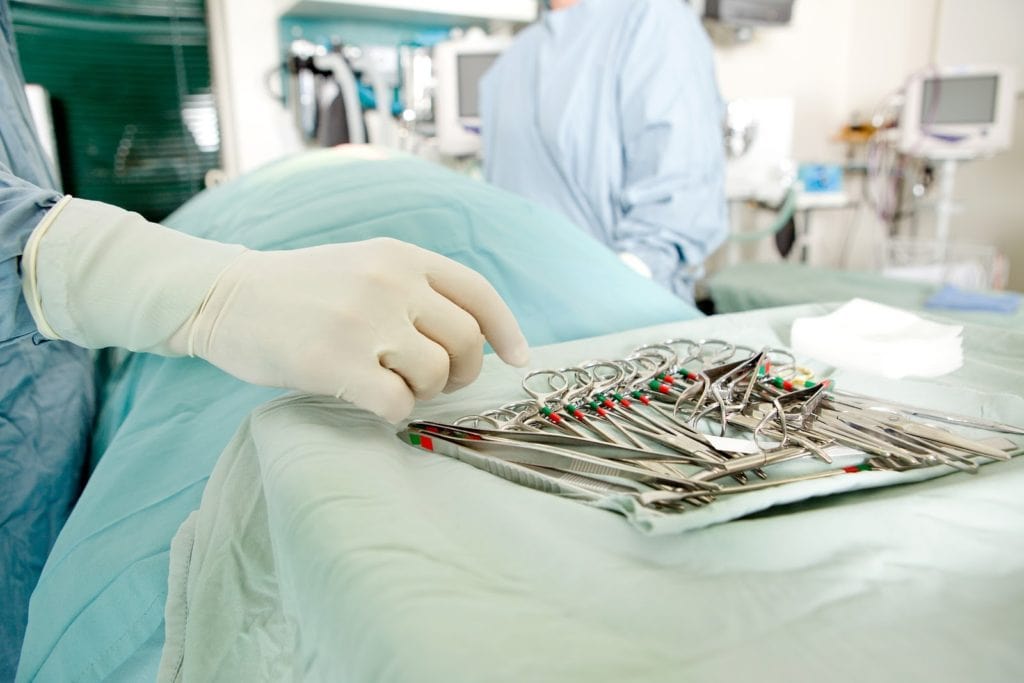A surgical mesh implant is used to provide support to weakened or damaged tissue. Unfortunately, many surgical mesh implants are responsible for severe injuries and deaths among implant recipients. Amid widespread recalls of mesh implants, you should ensure that your mesh implant is not causing you to suffer from complications. If you or a family member was injured because of a hernia mesh implant, you should consult with an experienced attorney today.
Your healthcare provider should always strive to provide you with the care that you deserve. Mesh implant lawsuit lawyer Prosper Shaked understands how stressful it can be to trust a doctor with your health, only to face an injury due to their actions. Prosper Injury Attorneys can help you pursue a claim against a negligent medical practitioner or pharmaceutical company. To schedule a free legal consultation, call (305) 694-2676, or contact us online. There is someone available to speak with you 24 hours a day.
What is a Hernia?
According to the Food and Drug Administration (FDA), a hernia occurs when a person’s organs, intestine, or fatty tissue manages to push through a hole or weak area in the muscle or tissue that holds it together. The majority of hernias happen at the abdominal wall. However, they can also happen on a person’s upper thigh, belly button, or groin area. Below is a list of common types of hernias that may require surgery to correct.
Inguinal Hernias
There are several types of hernias that a person could suffer from. The most common type of hernia is known as an inguinal hernia. Inguinal hernias account for approximately 70% of all hernias. An inguinal hernia occurs when an individual’s intestines squeeze through a weak area or tear in the lower portion of the abdominal wall (inguinal canal).
Inguinal hernias are typically more prevalent in men than women. According to the FDA, more than one million hernia repair surgeries are performed in the U.S. each year, and over 800,000 of those surgeries are to repair inguinal hernias.
Hiatal Hernias
A hiatal hernia is another common type of hernia. A hiatal hernia happens when a portion of your stomach pushes up through the diaphragm and into your chest cavity. This is an issue because your diaphragm regulates your breathing by contracting and drawing oxygen into the lungs. The diaphragm also separates the organs in your chest from those in your abdomen.
Generally, hiatal hernias are more common among people who are 50 years old or older. When a child develops a hiatal hernia, it is typically because of a congenital birth defect. Another issue that hiatal hernias may cause is gastroesophageal reflux.
Umbilical Hernias
Umbilical hernias usually occur in children who are under six months old. It occurs when the child’s intestines push through their abdominal wall. While surgery can be used to correct this type of hernia, it is more likely that the child will recover over time.
Incisional Hernias
Incisional hernias may occur after you undergo abdominal surgery. This type of hernia may occur if your intestines bulge through the incision scar or the tissue near the incision that may be weakened after surgery.
Femoral Hernias
A femoral hernia, also known as a femorocele, occurs when a section of tissue pops through the wall of the femoral canal. Femoral hernias usually appear as a bulge near a person’s groin or thigh. While this type of hernia rarely causes issues, it may impede blood flow to your intestines.
This is not an exhaustive list of the type of hernias a person could develop. There are other types of hernias that an individual may need surgery to handle.
Risk Factors for Hernias
Call us today at (305) 694-2676 or
contact us online for a free case evaluation.
Hablamos español.


To reiterate, hernias are usually caused due to muscle weakness and muscle strains. However, there are various risk factors that may increase your odds of developing a hernia. Some common causes of muscle weakness that could lead to a hernia include:
- A portion of the abdominal wall in the womb being open
- A person’s age
- Consistent coughing
- A certain type of injury or having surgery
If your muscles are already weakened, the following factors may cause you to have a hernia:
- Pregnancy
- Chronic constipation, which will cause strain during a bowel movement
- Weightlifting
- Having fluid in your abdomen
Signs and Symptoms of a Hernia
To determine whether you need to be checked for a hernia, there are signs and symptoms that you can look for besides a bulge in a certain part of your body:
- Pain or discomfort in a certain area of your body that may get worse when you bend over, cough, or lift things
- Pressure or the sensation of heaviness in your abdomen
- Burning or aching feeling at the site of a bulge
- Difficulty swallowing
- Chest pain
If you are experiencing any of the above symptoms or risk factors, you should seek medical attention right away.
How Surgical Mesh is Used to Treat Hernias
A surgical mesh implant is designed to assist damaged or weakened portions of tissue with supporting a person’s organs. Hernias are typically a recurring issue, which is why surgical mesh procedures are used to strengthen the affected area. Most types of surgical mesh are created using synthetic materials or animal tissue, such as pig or cow tissue. Surgical mesh that is created from synthetic materials can be designed to be absorbable, non-absorbable, or a combination of both. Surgical mesh created from animal tissue is absorbable.
It is important to understand what type of material your mesh is created from, so that you understand how it is supposed to operate. Non-absorbable surgical mesh is a permanent implant because it will remain in your body for an indefinite amount of time. Absorbable surgical mesh is designed to deteriorate and lose strength as time passes. Absorbable mesh is utilized when long-term reinforcement is needed, but new tissue is expected to grow in the weakened area.
There are two types of surgical procedures that may utilize a mesh implant to correct a hernia: laparoscopic surgery, and open repair surgery. A laparoscopic surgical procedure is when a surgeon makes numerous small incisions into the patient’s abdomen to insert other surgical tools to repair a hernia. An open repair surgery is when a surgeon makes a single incision near the area of a hernia to repair the weak muscles in the area.
How Dangerous Are Mesh Implants?
Despite the fact that surgical mesh is used to repair an area of a person’s body that has suffered a hernia, there are various complications associated with surgical mesh implants. Complications involving mesh implants can vary. For example, some patients may develop infections, while others suffer from some form of mesh failure.
Mesh implants have been shown to cause internal bleeding, fistula formations, and a variety of other complications and injuries. Approximately 73,000 infections every year are caused by mesh implants. One of the most common infections associated with mesh implants is Staphylococcus aureus (SA). SA can cause mild issues like skin infections and abscesses. However, SA can also cause serious or life-threatening illnesses like pneumonia, osteomyelitis, and endocarditis. An infection from a mesh implant can occur weeks or even years after a mesh implant surgery. Therefore, if your implant is causing you discomfort or pain, you should seek prompt medical attention to ensure that you do not have an infection.
Deaths and Injuries Caused by Mesh Implants
Mesh migration is another serious complication that can result from a mesh implant. Mesh migration occurs when your implanted surgical mesh moves from its intended location to another area of your body. If your mesh implant moves from its implanted location, it can cause a variety of issues, including:
- Serious internal bleeding
- Severe and chronic pain
- The recurrence of your hernia
- The connection of two organs that should not connect (fistula formation)
Other issues that can arise from a mesh implant include:
- Mesh Contraction – This occurs if your mesh collapses and no longer covers the area of a hernia, which may cause a hernia to reoccur
- Mesh Obstruction – The mesh implant causes a blockage in the small or large intestine
- Mesh Perforation – The mesh causes a hole to form in a nearby organ
These issues can cause patients various problems like life-threatening infections, quality of life issues, and usually chronic pain. Some of these issues also require the mesh implant to be removed and possibly replaced if the hernia was not repaired. This will likely cause great emotional, physical, and financial distress for a patient who has already endured various other procedures due to a faulty mesh implant.
Hernia Mesh Recalls, Lawsuits, and Defects
Get started with your complimentary case evaluation today;
call us at (305) 694-2676 or reach us online using our
secure contact form.


There are several lawsuits and recalls stemming from faulty mesh implants. One common lawsuit involves surgical mesh produced by the Atrium Medical Corporation. Plaintiffs allege that mesh from this company was packaged in fish oil which caused the mesh to tear during surgery or cause inflammation once implanted.Early in 2018, the Atrium Medical Corporation recalled one of their products called ProLite Mesh, stating that the product was incorrectly labeled. In April 2018, the FDA announced a recall for Sofradim Production’s Versatex Monofilament Mesh because it did not repair abdominal hernias as intended.
Hernia Mesh Lawyer for Personal Injury and Wrongful Death Lawsuits
If a defective mesh implant caused the injury or death of your family member, you should contact a hernia mesh lawsuit attorney for legal assistance today. Attorney Prosper Shaked is here to represent you against negligent mesh manufacturers if you were seriously harmed by a faulty or defective product. To schedule a free legal consultation, call Prosper Injury Attorneys at (305) 694-2676, or contact us online.


